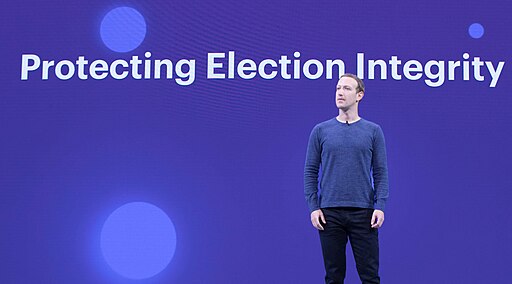
Facebook “whistleblower” Frances Haugen, the Washington Post reports, has “repeatedly accused [Facebook CEO Mark] Zuckerberg of choosing growth over the public good.” The Post‘s headline puts it a slightly different way: “Growth over safety.”
The meaning of “growth” in this context is pretty obvious: Zuckerberg’s company makes a lot of money, and he wants it to make even more.
The meaning of “safety” is somewhat more nebulous. Facebook spokeswoman Dani Lever refers to “difficult decisions between free expressions and harmful speech, security and other issues” before going to a place that should chill the blood of anyone listening:
“Drawing these societal lines is always better left to elected leaders which is why we’ve spent many years advocating for Congress to pass updated Internet regulations.”
The Post story opens with a more accurate account of what Lever proposes:
“Late last year, Mark Zuckerberg faced a choice: Comply with demands from Vietnam’s ruling Communist Party to censor anti-government dissidents or risk getting knocked offline in one of Facebook’s most lucrative Asian markets.”
Zuck decided to work for Hanoi instead of for Facebook’s users in Vietnam. And in the US he’d be happy to work for Congress rather than for Facebook’s American users, as long as doing so doesn’t get in between and his real customers (advertisers), and perhaps even herds more of those customers his way.
Neither “the public good” nor “safety” (for anyone or anything but the political class’s power and Facebook’s profits, at least) enter into the equation.
Zuckerberg’s job is to grow his company’s profits, thereby growing his and his shareholders’ wealth, full stop. That’s what companies do. Their goal, in three words, is to “increase shareholder value.”
One of the most effective ways of doing that, if he can manage it, is getting governments to ensure that Facebook faces little or no competition in its chosen marketplaces.
With market capitalization approaching $1 trillion and annual net income of $30 billion or so, Facebook is well-positioned to meet the costs of complying with whatever censorship regime Congress might choose to impose to protect the interests of the ruling class (not “the public good”). Smaller social media platforms or potential new competitors, not so much.
As for the politicians cosplaying as Facebook’s opponents while actually working overtime to turn it into a monopoly, they’d have you believe that any speech they dislike (they call it “misinformation”) equates to shouting “fire” in a crowded theater, and that they’re heroic guardians of your safety. In reality, they’re just muggers attempting to run off with even more of your freedom than they’ve already taken.
Mark Zuckerberg may not be your friend, but if you let him become Congress’s friend he’ll surely be your enemy.
Thomas L. Knapp (Twitter: @thomaslknapp) is director and senior news analyst at the William Lloyd Garrison Center for Libertarian Advocacy Journalism (thegarrisoncenter.org). He lives and works in north central Florida.
PUBLICATION HISTORY


